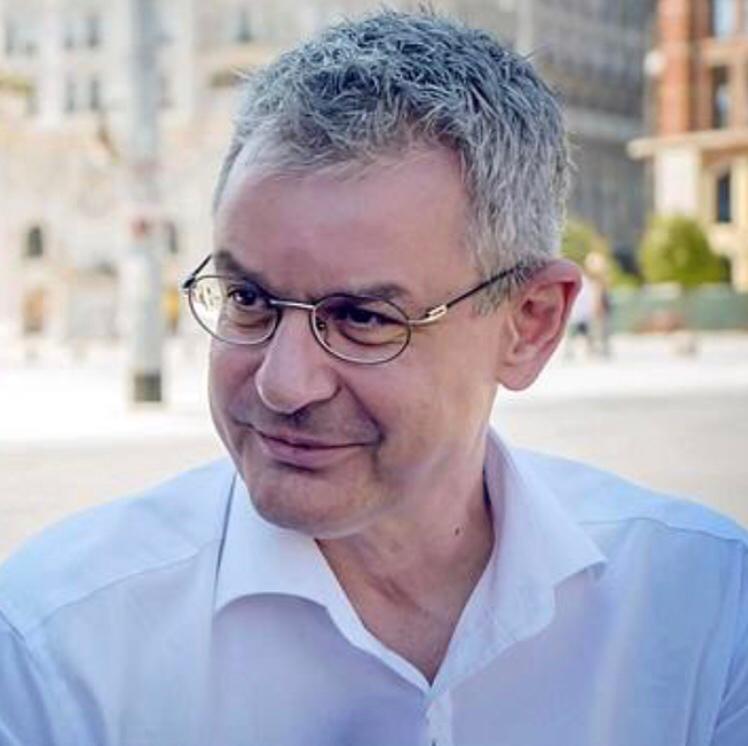Narcissism: A child trapped in an adult body
Sam Vaknin, writer, professor of psychology and economics (Centre for International Advanced and Professional Studies), born in Israel, also suffers from narcissist personality disorder. In fact, as he recalled, once he was diagnosed as a psychopath, so it is fair to say that he knows narcissism in and out.
The title of his lecture delivered in English was ‘Cluster B personality disorders rethought’. The so-called cluster B is the group of ‘dramatic’ people, who usually throw stormy scenes: this category includes people suffering from antisocial personality disorder (psychopaths) and people living with borderline, narcissist and histrionic (struggling in the grasp of theatrical, exaggerated and superficial emotions) personality disorders. In Vaknin’s opinion, these disorders should be looked at in a way that each disorder is a spectrum, and the question is which patient is located in which part of the spectrum. ‘People keep sliding from one diagnosis to the other’, thinks the professor.

He has been studying these personality disorders since 1995, primarily the narcissistic and the borderline personalities. He delivers a lot of lectures in this topic, his famous book titled Malignant Self Love primarily talks about the above disorders, and gives advice to people who are close relatives or spouses of people suffering from these disorders.
On Tuesday, at the University, Vaknin explained the following: people belonging to the borderline type (according to the data, half of these people are male, and half are female) are not able to control their feelings, their mood changes in extreme ways, and they exhaust their environment with suicide attempts and frequent self-harms. The professor supposes that there are partly genetic reasons, but mainly childhood abuse in the background (often sexual abuse, but other types are also possible). In Vaknin’s opinion, the narcissist and the borderline actually do similar things, but there is a difference between them, although he sees an overlap between the two disorders.
In both cases, Vaknin thinks that the reason should be looked for in a trauma in early childhood. A normally developing baby is not happy when the person it loves (the mother, but it can be anyone else, too, to whom it is devoted) leaves the room, but knows that the loved person will come back. A narcissist, however, is unable to map it in his/her brain that the mother will come back – if the mother is emotionally depressive, avoiding, the baby will not develop normally. The professor says that this characteristic feature stays in narcissists even in the later stages of their lives. As he says, narcissists have empathy, but a negative event does not touch them emotionally. One of the common features of narcissist and borderline people is that they are afraid of intimacy. Actually, psychopaths are empathic persons: with their often enchanting behaviour, they accurately put their fingers on the partner’s desires (this would be impossible without empathy), and this is how they can seduce people and then use them for their own purposes.
Vakcin also explained that close relatives and partners of narcissist people are in a very difficult situation: they may become victims, and can even develop mental illnesses themselves. He thinks that narcissist people usually look for a mother substitute in their partners, and, in fact, want four things from their partners: services, attention, sex and security. Otherwise, narcissists often have successful careers, they often become leaders, and have good imagination.
The obvious question is whether it is possible to help narcissists. The professor thinks that in their case, it is impossible to overcome the childhood trauma (as they themselves are not aware of it). He says that narcissism is a ‘life sentence’, but these people can be successfully treated with the so-called cold therapy developed by him – re-traumatising them in an unfriendly environment that resembles the original trauma -, and influence their behaviour in the right direction, so even a win-win situation may develop with the partner.
In fact, Vaknin thinks (he talked about this in a previous lecture in Hungary, and lots of videos are available on the net and on his website) that the partners of narcissist people often become narcissist themselves. He says that narcissism is more infectious than Covid, but there is no quarantine for it. In answer to a student’s question at the Corvinus, Vaknin replied that a narcissist person is actually a small child inside, as his/her ego is two-year old in some things, and six-year old in other things. He also explained that cold therapy applies methods used in child psychology, this is why it is useful for the patient. In reply to another question – how to ‘survive a narcissist person’ – he said: walk away, i.e. break off all relations with the person.
Katalin Török